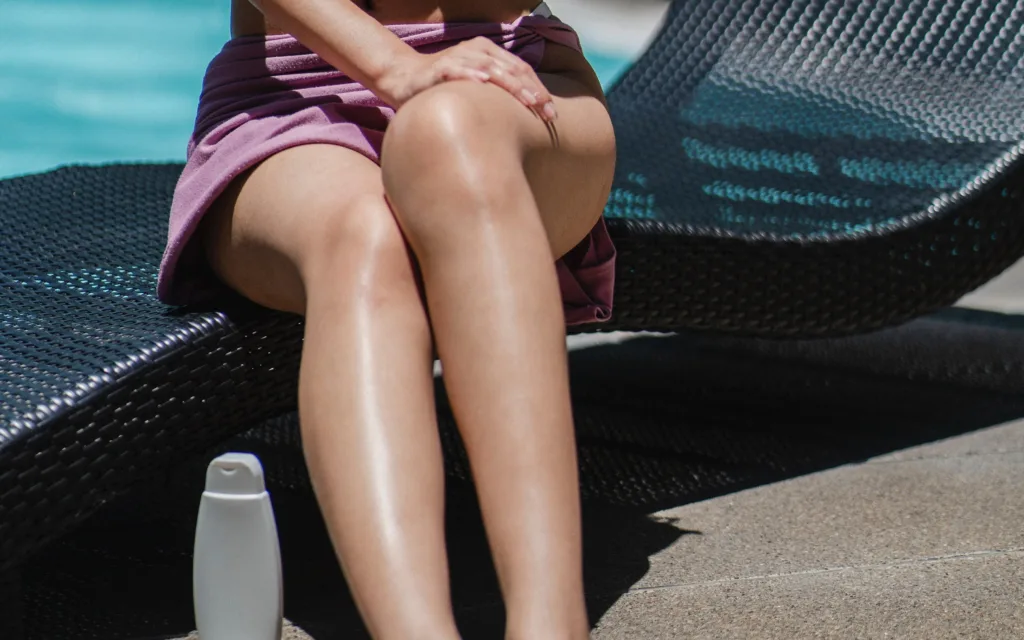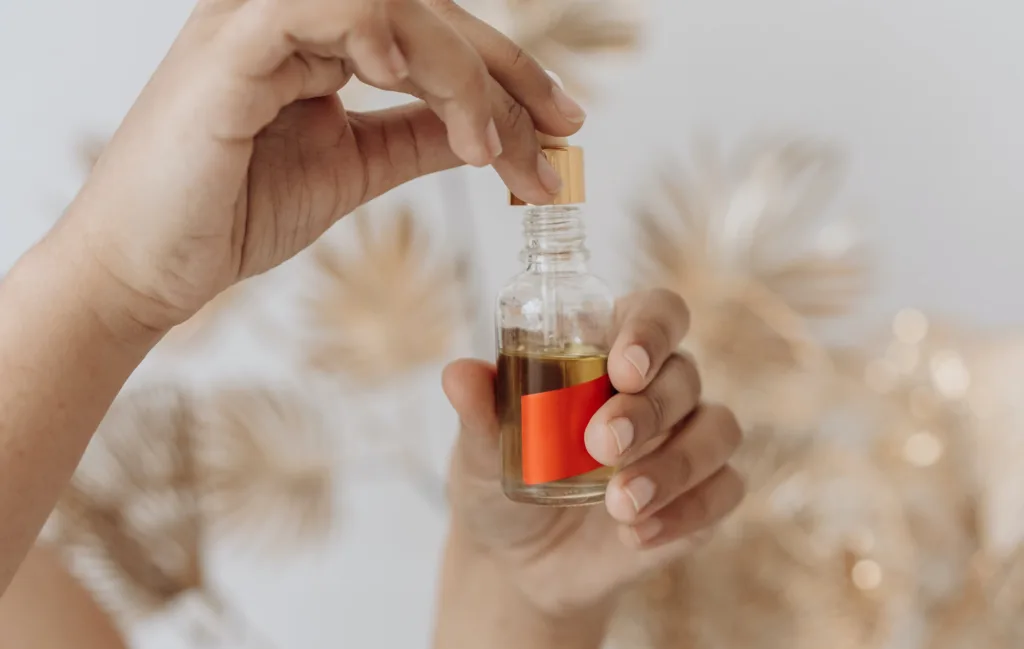Are you looking for a simple and cheap way to get a tan? Castor oil might be the answer! It’s usually known for keeping your skin moisturized and helping it heal. Now, people are using it to get a tan. This oil comes from castor plant seeds and has been used in skincare for ages. People believe it makes your skin more elastic and keeps it looking good. But can it really give you a nice, natural tan? In this article, we’ll check out if using castor oil for tanning is a good idea.
We’ll talk about the good stuff and the not-so-good stuff, and also how safe and effective it is. By the end, you’ll know if castor oil is a good choice for that sun-kissed look. Let’s find out more about using castor oil for tanning!
The Advantages of castor oil for skin health
Ever wondered about the wonders of castor oil for your skin? Well, wonder no more! Castor oil isn’t just your average oil – it’s a really great thing for your skin. Packed with goodness, it’s known for keeping your skin happy and healthy. Let’s dive into the benefits of castor oil for the skin:
- Intense Hydration: Castor oil deeply moisturizes, making it ideal for combatting dry and flaky skin. Its thick consistency ensures long-lasting hydration.
- Healing Marvel: Renowned for its healing properties, castor oil can soothe irritated skin, reduce inflammation, and contribute to overall skin recovery.
- Firming Effect: The abundance of fatty acids in castor oil promotes skin elasticity, potentially diminishing the appearance of fine lines and wrinkles.
- Acne Combatant: Acting as a natural antimicrobial agent, castor oil fights acne-causing bacteria without disrupting the skin’s natural moisture balance.
- Anti-Aging Defense: Packed with antioxidants, castor oil serves as a shield against free radicals, aiding in the prevention of premature aging and keeping your skin youthful.
- Even Skin Tone: Regular use may help reduce pigmentation, resulting in a more even complexion and a radiant glow.
Incorporating castor oil into your skincare routine can offer a range of benefits, catering to various skin needs.
Understanding tanning and its effects on the skin
The process of tanning, which is sometimes associated with the desire for a sun-kissed glow, is a complicated interaction between UV radiation and the skin. Even while having a bronzed complexion might seem good, it’s important to understand the subtle ways that this process impacts our skin.
Firstly, Natural Defense: Exposure to sunlight triggers your skin’s natural defense mechanism, producing melanin to shield against UV damage.
Additionally, UV Rays Impact: Tanning responds to UVB rays, increasing melanin to absorb UV radiation. However, excessive sun exposure can overwhelm this defense, leading to sunburn and potential long-term damage.
Furthermore, Risks Involved: While a tan may seem tempting, prolonged sun exposure accelerates aging, risks uneven pigmentation, and significantly raises the chance of skin cancer.
Moreover, Artificial Methods: Artificial tanning methods, like tanning beds, contribute to pigmentation but come with similar risks associated with UV exposure.
Lastly, Protective Measures: To balance that desired glow with skin health, adopt protective measures such as sunscreen, seeking shade, and wearing protective clothing.
In essence, understanding tanning involves acknowledging its effects and adopting protective habits for healthier, radiant skin.
Can castor oil be used for tanning?
So, you’re wondering if castor oil can step up your tanning game. It’s a bit like trying to unlock the mysteries of skincare, right? Let’s break it down and see if castor oil is the missing piece to that perfect tan puzzle.
First Things First, Hydration Power: Castor oil is like the superhero of moisturizers. It’s got this crazy ability to keep your skin hydrated. And you know what’s cool? Hydrated skin might mean a smoother tan. No one likes that sun-dried feeling, right?
Plus, Healing Vibes: They say castor oil has some healing mojo. Imagine it as your skin’s bodyguard against the UV rays during tanning. It could be like having a secret shield for your skin, but don’t go ditching your sunscreen just yet!
But, Not Exactly Sunscreen Material: Let’s be real – castor oil isn’t your go-to sunscreen buddy. While it might add a touch of natural protection, it’s not the SPF superhero you need for serious sun sessions. For the marathon tanning, you still want your regular sunscreen in the game.
Also, Skin is Like a Snowflake: Here’s the deal – everyone’s skin is different. What works wonders for your buddy might not be your vibe. So, before you go all-in with castor oil, do a quick patch test. No one needs surprises when it comes to their skin, right?

The Potential Risks of using castor oil for tanning
So, you’re all in for that sun-kissed vibe with castor oil. Cool move! But, like any adventure, let’s be real about the potential risks before diving in.
Firstly, Breakout Alert:
Castor oil is a heavyweight in moisturizing, but for some skin types, it might be too much of a good thing. If your skin is prone to breakouts, using castor oil for tanning could be like inviting pimples to the party. Nobody wants that, right?
Additionally, Allergic Adventures:
We’re all unique, and so are our allergies. Castor oil might be your buddy, or it might not. Some folks could have allergic reactions, causing redness or itching. Better to find out with a patch test before going all-in on your tanning plan.
Moreover, Sun Sensitivity Showdown:
While castor oil might have some protective vibes, it’s not a substitute for sunscreen. If you’re planning an extended sun rendezvous, relying solely on castor oil might leave your skin vulnerable to UV rays. Team it up with good sunscreen for the win.
Also, Not for Everyone:
Here’s the deal – what’s golden for one might not shine for another. If you have sensitive skin or certain skin conditions, using castor oil for tanning might not be the best play. Always consult with your skin’s manager (aka a dermatologist) for the green light.
Castor oil tanning could be a slick move, but there’s a flip side. Breakouts, allergies, sun sensitivity – they’re the risks in this game. Before you roll the dice with castor oil, know your skin’s rules and play it safe. After all, a healthy tan is the real goal, right?
How to use castor oil for tanning
If you’re still pondering the castor oil tanning journey, not a bad idea to give it a shot – it might work wonders for you. I haven’t personally tried it, but I’ve heard about its benefits and the potential pitfalls. Just a friendly heads-up: while it can do good, there are also tales of caution.
So, if you decide to dip your toes into the castor oil pool, tread carefully and keep the balance. Here’s the lowdown on how to use castor oil for tanning:
- Patch Test Priority: Before diving in, patch test a small area to ensure your skin is on board.
- Blend Smoothly: Mix castor oil with a lighter oil (coconut or almond) for a silky texture.
- Even Application: Massage the blend evenly onto your skin, giving each area some love.
- Sunscreen Tag Team: Before castor oil, apply sunscreen – your skin’s dynamic duo against UV rays.
- Smart Timing: Start slow with short sun sessions, then gradually extend your tanning time.
- Post-Tan Hydration: Wrap it up with a hydrating moisturizer for that extra post-Tan glow.
Don’t go all in for marathon tanning sessions, especially if you’re new to the castor oil crew. Start slow – shorter sun exposures to see how your skin reacts. Gradually increase if all goes well. It’s like building a tan foundation.
After your tanning rendezvous, show your skin some love. Hydrate with a gentle moisturizer – keep that skin happy and glowing.

Other natural alternatives for tanning
Looking to switch up your tanning game with nature’s touch? Check out these 5 natural alternatives to get that golden glow:
- Coconut Oil: A tropical favorite, coconut oil not only hydrates but also provides a mild SPF, making it a dual-purpose tanning companion.
- Green Tea: Brew up some green tea and let it cool. Applied to the skin, it can provide antioxidants while potentially enhancing your skin’s natural UV protection.
- Carrot Juice: Sip on some carrot juice for a boost of beta-carotene, a pigment that may contribute to a subtle bronzed effect over time.
- Coffee Ground Scrub: Mix coffee grounds with a bit of water or oil for a natural exfoliator. It not only buffs away dead skin but might give your skin a temporary tan-like appearance.
- Aloe Vera Gel: After a sun session, cool down with aloe vera gel. Not only does it soothe the skin, but it can also enhance your tan’s longevity.
- Almond Oil: Introducing almond oil for tanning—a moisturizing marvel that can contribute to a natural, sun-kissed sheen. Smooth on for a radiant touch.
Remember, these alternatives can enhance your tanning experience, but sun protection is still key. Mix and match, find what works for you, and enjoy your natural glow!
Conclusion: Castor Oil For Tanning
After unpacking the potential benefits, risks, and application tips, the question remains: Is castor oil a stellar choice for tanning? Let’s wrap it up and draw our conclusions.
The Positives:
- Moisturizing Marvel: Castor oil’s hydrating power can leave your skin feeling supple, potentially preventing the dryness often associated with tanning.
- Healing Touch: Its healing properties might act as a protective layer against UV rays, offering an added shield during your tanning sessions.
The Considerations:
- Not a Sunscreen Substitute: Castor oil shouldn’t be relied upon as a stand-alone sunscreen. While it may offer some natural protection, combining it with a dedicated sunscreen is crucial for extended sun exposure.
- Varied Skin Reactions: Individual skin responses to castor oil can differ. Doing a patch test is essential to gauge how your unique skin reacts to this tanning approach.
So, is castor oil for tanning a good option? The answer depends on your skin type, preferences, and commitment to sun safety. If you enjoy experimenting with natural alternatives and prioritize a hydrated, potentially protected tan, castor oil could be a valuable player in your tanning game. As with any skincare decision, understanding your skin’s unique needs is key to achieving that sun-kissed glow responsibly.

